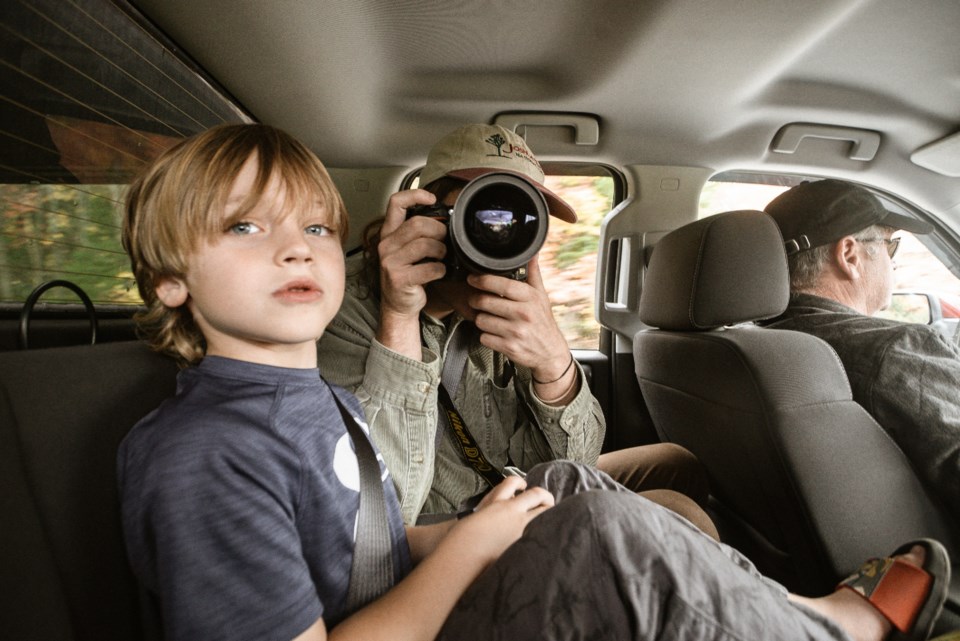Like most folks in B.C., you are likely looking at the cost of gas and — after popping an antacid — perhaps rethinking that cross-country road trip planned for this summer.
A new survey from BCAA shows that while 69% of British Columbians still plan to go on a holiday road trip, 78% say that they will vacation closer to home.
Most respondents — 76% — also say they plan to do less exploring by car at their vacation destination.
Road trips are a time-honoured tradition, so before you park the idea altogether, Josh Smythe, BCAA automotive manager, has some tips for saving fuel on the road.
"A gas pedal kind of works like a volume dial," Smythe explained.
"The more you press it, the more gas you're going to put into your car. That obviously delivers more power at that time...When you move forward, or when you perpetuate the car, that's when you're consuming the most fuel."
On the highway, maintaining a speed of between 80 to 90 kilometres per hour is the most fuel-efficient, he said.
"Any faster than that you're a little bit too hard on the pedal — you're burning through the fuel. Slower than that [and] you're not in the most optimal gear position. So somewhere between."
Avoid tailgating, too, because you are wasting that extra gas energy for braking power, he said.
"The newer cars are quite effective at getting the best out of the fuel itself; it is our habits after that, that make that change," he said.
"So, you know, jack-rabbiting your foot on and off the gas, hard accelerations, hard stops,” he said as examples of bad habits that consume more fuel and thus cost drivers more money.
Smythe advises drivers give themselves room from other vehicles and have smooth actions on the gas pedal — and chill.
"When you're in your car, on a road trip, you're already on vacation... Relax, be comfortable, don't... dart around, you know. Enjoy the scenery while you're going and just drive respectfully. And you'll get to where you need to be with as little waste as possible."
Ditch the extra weight
If you aren't fully using your roof rack cargo carrier, take it off, Smythe said.
"You're changing the wind resistance; it creates a little bit more drag and that in itself turns into fuel consumption," he said.
Open the windows first
Air conditioning robs energy from the engine, so roll the windows down for cooler air before resorting to air conditioning, he said.
If you still drive a stick
While automatic cars are a little more fuel-efficient, for those behind the wheel of a manual vehicle, Smythe suggests getting to the gear you need sooner rather than later.
"Accelerate reasonably, shift sooner than you think you should — somewhere between say 2,500 to 3,000 RPM," he said.
"And then when you get to your sixth or fifth year — whatever your overdrive gear is — stay in that gear until power dictates otherwise."
Don't drive on empty
Smythe said while some folks think riding around with less gas can save fuel because it lightens up the car, it isn't worth doing.
"Theoretically, they're not wrong, But the long-term side effects of that are going to be costly because the fuel itself is what keeps the fuel pump cool," he said.
"Now that we're hitting summertime and heat becomes more extreme, if the fuel pump is not being cooled properly, it can fail on you. So if you're only filling up to a half a tank and then running it almost dry to save weight, you are effectively burning up your fuel pump."
Other road tripping tips
Our highways can get busy and, unfortunately, getting stuck waiting in a traffic jam or for a crash or landslide to clear is a possibility this summer.
Smythe says in addition to packing the car with lots of water, fresh snacks — not those granola bars from three years ago you stuffed in the trunk — and activities for the kids, also carry an umbrella for summer road trips.
"You can shut your car off, pop the umbrella open and get some shade," he said.
A portable, rechargeable battery for your phone is also a smart thing to pack, he said.
And if you break down, be sure to pull as far to the side as you can, pop the hood, turn on your hazards and stay inside the car, if possible, while you wait for help to arrive.




